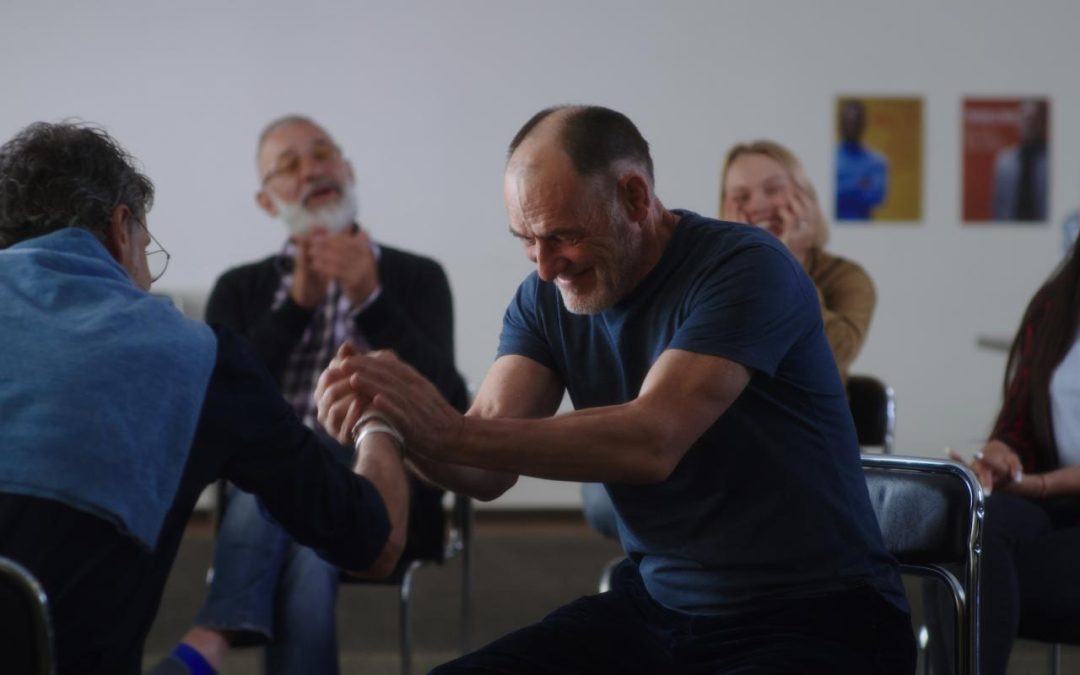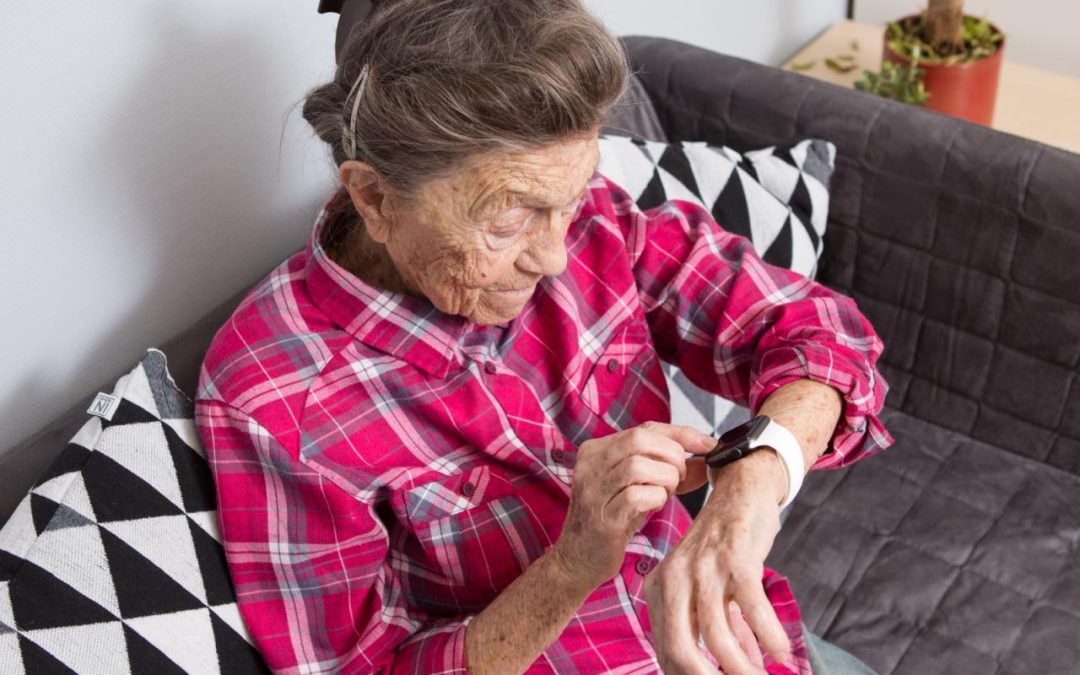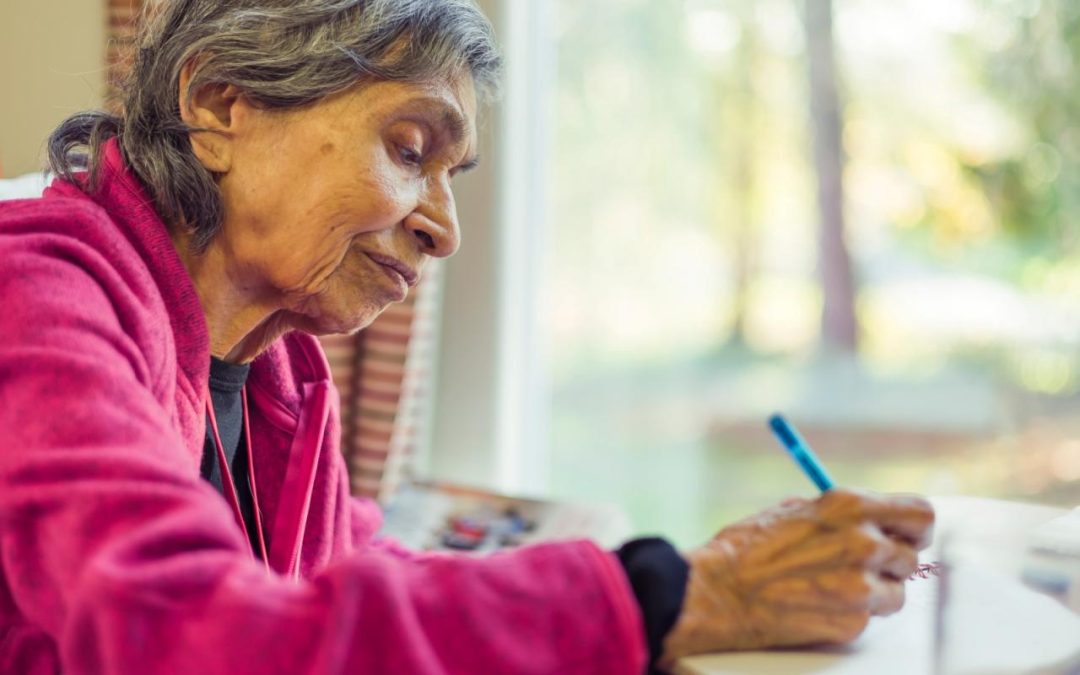Creative, multipronged national efforts are underway to address the shortage of geriatric mental health providers who also have knowledge of substance use.

Generations Journal, vol. 48, no. 1 (Spring 2024)

Creative, multipronged national efforts are underway to address the shortage of geriatric mental health providers who also have knowledge of substance use.

Solving a critical need to prioritize behavioral healthcare for older Americans.

Reimbursement policies, cross-state licensure, and medical training will all need alteration for tech to have the desired impact on late life mental health.

Addressing needs of undocumented immigrants, those with serious mental illness, and those with intellectual disabilities.

Highly effective therapy for victims of crime and elder abuse reduces depression.

Non-licensed individuals delivering specific mental health help can be effective for elders, particularly in areas with a dearth of licensed mental health providers.

Multiple strategies will be needed to empower older adults to seek and accept mental health services and supports when they need them.

Geriatric mental health expert Tobi Abramson will never stop pushing the growth narrative.

Elder-led community model fosters older adults’ mental health and resilience.

An experience of being assessed.
Generations Journal, vol. 48, no. 1 (Spring 2024)
Abstract: The United States must act now to strengthen the geriatric healthcare workforce to meet the mental health and substance use (MH/SU) needs of a growing older adult population. Older adults have complex MH/SU needs. The geriatric specialist shortage means we...
Abstract: There are not enough healthcare providers to meet the mental health needs of older adults, and older adults are far less likely to get mental health and substance use services than are younger adults. The SAMHSA-funded E4 Center of Excellence for Behavioral...
Abstract: The COVID-19 pandemic accelerated the integration of telemental health services for older adults. But such digitization also created new complexities regarding equitable access, privacy, and regulation. This article summarizes the evolving digital mental...
Abstract: This article addresses the mental health care needs of three groups of older adults with layered marginalities: undocumented immigrants, those with serious mental illness, and those with intellectual disabilities. The needs and barriers related to mental...
Abstract: Older adult victims of abuse and crime have significant unmet mental health needs, with high rates of depression and anxiety. But few victims are offered mental health care, and there are no standardized, effective programs to address their specific mental...
Abstract: In task-sharing models, specific mental health tasks typically delivered by a licensed mental health clinician are assigned instead to a non-licensed individual. These approaches may address unmet mental health needs in rural and other low-resource areas. A...
Abstract: For more than 2 decades, mental health literacy has been a topic of interest among behavioral health researchers. Despite the older adult population's significant growth, there is little information about how best to increase their mental health literacy....
Tobi Abramson may serve in two rather large day jobs—directing both geriatric mental health initiatives for New York City and the Mental Health Counseling Program at the New York Institute of Technology (NYIT)—but we at ASA know Tobi as a deeply involved leader who is...
Abstract: Aging is conventionally viewed as a process of decline, which marginalizes a fast-growing part of the world's population and is detrimental to elders' mental health. In contrast, the Ibasho model, led by eight core principles, empowers elders to co-create a...
This piece originally ran in the Spring 1997 edition of Generations. The Editorial Advisory Board found it remains relevant to this day (if not more so) and pertinent to this issue on Mental Health, Aging, and Resilience. Bonnie was a beloved member of the American...
Abstract: Most older adults have experienced at least one traumatic event in their lifetime. This article explores the relationship between aging and post-traumatic growth (PTG). Increasingly, PTG is recognized as a phenomenon describing positive changes following an...
Abstract: Loneliness has become a pressing concern for elders, impairing physical and mental health and eroding quality of life. Creative arts engagement is an attractive programmatic intervention, enabled by selective modulation of brain activity, and reinforced by...
Abstract: Psychological resilience is vital to the well-being of older adults. A resilience framework acknowledges that challenges exist but emphasizes strengths. Resilience, a multidimensional construct, is influenced by the interaction of internal factors and...
Abstract: Ageism is a pervasive issue with profound implications for mental health. Negative stereotypes and discriminatory attitudes can lead to feelings of isolation, anxiety, and depression in older adults. Ageism can affect self-worth and self-esteem, making...
Dear Readers, It has been my privilege to guest edit this issue of Generations Journal on Mental Health, Aging, and Resilience. When asked why this topic matters, one need only think about the growth of the aging population and the anticipated increase in the number...
Suggested citation for articles in this issue: [Last Name(s), First Name(s)]. “Article Title.” Generations Journal, vol. [#], no. [#] [season and year (ex. Fall 2024)]. [URL]
Generations Journal is the quarterly journal of the American Society on Aging. Each issue is devoted to bringing together the most useful and current knowledge about a specific topic in the field of aging, with emphasis on practice, research, and policy.